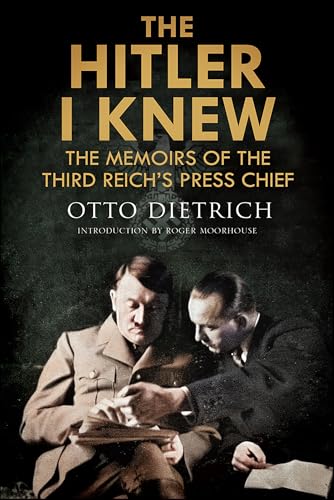
Visions of Victory
by Gerhard L. Weinberg
"The Hopes of Eight World War II Leaders"
Popularity
4.89 / 5
* A book's popularity is determined by how it compares to all other books on this website.
Where to buy?
Buy from Amazon* If you buy this book through the link above, we may receive a small commission at no extra cost to you.
Visions of Victory by Gerhard L. Weinberg
Details
War:
World War II
Perspective:
Commanders
Biography:
No
Region:
Europe
Page Count:
328
Published Date:
2005
ISBN13:
9780521852548
Description
Main Themes and Topics
In Visions of Victory, Gerhard L. Weinberg provides an insightful comparison of the long-term goals held by the key leaders of the major powers involved in World War II. Through meticulous research, Weinberg examines the forward-looking strategies and desires of figures like Hitler, Mussolini, Tojo, Chiang Kai-shek, Stalin, Churchill, de Gaulle, and Roosevelt. The book sheds light on how their ambitions extended beyond mere victory in the war to envisioning a future world order. Thematically, it stresses the divergence in their visions—ranging from imperial expansion and ethnic dominance to the establishment of international institutions like the United Nations.
Writing Style and Tone
Weinberg's writing in Visions of Victory stands out for its clarity and scholarly rigor. The tone is analytical and objective, focusing on factual evidence and historical documentation. Weinberg deftly avoids sensationalism, presenting a balanced view of each leader’s aspirations while carefully delineating the historical context. His methodical approach allows readers to grasp the intricate web of political aims that shaped wartime and postwar strategies.
Awards and Recognition
Since its publication, Visions of Victory has been praised for its depth and originality in historical analysis. It is recognized as a unique contribution to the field of World War II studies, offering perspectives that challenge conventional narratives and providing fresh insights into the motivations driving the leaders of the era.
Criticism
While Visions of Victory has been highly acclaimed, some critics argue that the book could delve deeper into the implications of these visions for contemporary geopolitics. Additionally, a few readers believe that the focus on each leader’s aspirations might obscure the complexity of international relations during the period.
Brief Summary
Visions of Victory unravels the complex web of future plans held by the pivotal leaders of World War II. Weinberg contrasts the horrific agendas of leaders like Hitler and Mussolini, who envisioned vast territorial expansion and ethnic cleansing, with the more diplomatic aspirations of leaders like Roosevelt, who sought to foster global cooperation through mechanisms such as the United Nations. The book highlights how these visions shaped not only the conduct of the war but also the potential futures they imagined, offering a compelling assessment of the historical 'what might have been.'









